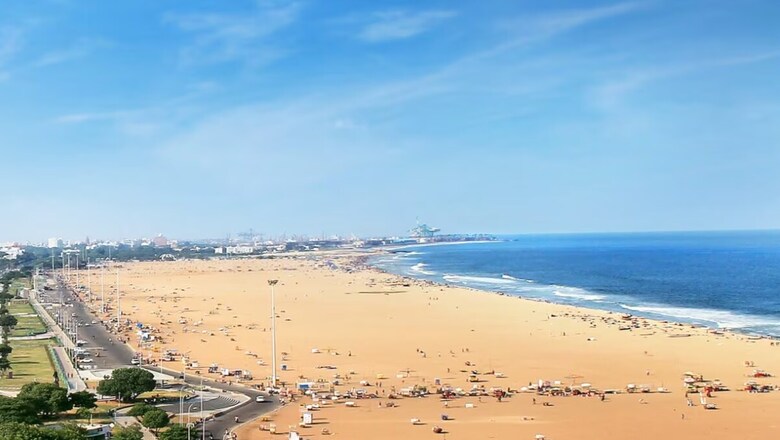
views
In the aftermath of floods and an industrial oil spill, the coastal city of Chennai is grappling with an unusual phenomenon as hundreds of venomous marine creatures, including Blue Buttons and Blue Sea Dragons, have washed ashore. The incident has prompted safety concerns among residents. Srivatsan Ramkumar, a resident of Chennai and an active member of the Environmentalist Foundation of India, reported the sighting of these venomous sea creatures.
He told The News Minute, “Hundreds of them had washed ashore between the broken bridge and the Ashtalakshmi temple stretch of the beach.”
“While a large number of them were dead, I spotted some Blue Sea Dragons and Blue Buttons that were alive,” he added.
According to Ramkumar, approximately 50 of these creatures were found near the Broken Bridge area in Besant Nagar on a recent Sunday evening. The unusual influx of these venomous marine organisms has raised concerns about the potential risks they pose to public safety.
Prashanth E, the wildlife warden at the Tamil Nadu Forest Department, has issued a cautionary advisory to the public, underscoring the venomous nature of the recently appeared sea creatures. He highlighted that the flushing of the sea bed is a common aftermath of cyclonic disturbances. While the sighting of Blue Sea Dragons on Chennai’s shore is not a routine event, he noted that they do make sporadic appearances, reported LadBible.
“It is best not to touch them,” he cautioned.
While the creatures are not deadly to humans, they can cause painful rashes. VS Chandrasekaran, a retired Principal Scientist of the Central Institute of Brackishwater Aquaculture (CIBA), explained, “Blue Buttons have a ‘man of war’ mechanism – which means that they use the tentacles like body parts to sting any foreign body that comes in contact to defend themselves.”
Additionally, he mentioned that local fishers commonly label these jellyfish-like organisms as ‘Sori’ due to their propensity to cause skin irritation, rashes, and pain. He strongly advised against touching them, despite their non-lethal venom, to avoid any potential discomfort and adverse reactions.
In an elaboration provided to The News Minute, he clarified that both organisms would inevitably perish if they remained stranded on the coast. “They will die once they dehydrate. They cannot withstand the daytime temperatures on the shore,” he emphasised.


















Comments
0 comment